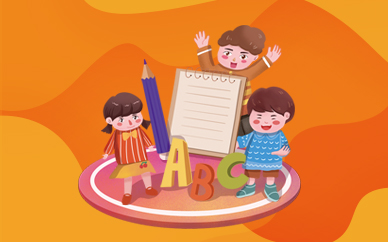【来源龙腾网】
评论原创翻译:
 (资料图片仅供参考)
(资料图片仅供参考)
Peter
Reading speed is correlated with intelligence, but the correlation isn"t all that strong. Some very smart people don"t read that fast. The fastest readers are limited only by their scanning speed, at least on easy material. The world"s fastest reader is, apparently, Howard Berg. He has been tested at 25,000 words per minute, but it"s hard to find information on just what he read at that speed and h0w much he understood and retained.
Many people can read at well over 1,000 words per minute with good comprehension of material. Bertrand Russell, reportedly, read a normal sized paperback mystery book in well under an hour.
Good readers, however, are able to vary their reading speed a lot.
阅读速度与智力相关,但相关性并不强。有些非常聪明的人读得没那么快。最快的阅读者只受扫描速度的限制,至少在简单的材料上是这样。霍华德·伯格显然是世界上阅读速度最快的人。他测试过以每分钟25000个单词的速度进行阅读,但很难找到关于他以这种速度阅读的内容以及他能理解和保留多少内容的信息。
许多人能以每分钟1000多个单词的速度阅读,并对材料有很好的理解力。据报道,伯特兰·罗素(Bertrand Russell)在不到一小时的时间内阅读了一本正常规格的简装版本的难以理解的书。
然而,优秀阅读者能够改变他们的阅读速度。
John Sigwell
I will assume you meant a really intelligent person as in a very bright person. In other words, a person who internally possesses an IQ exceeding a level of 125 at the minimum.
Did you mean process information or finish a book? Finishing a book would be dependent on the time dedicated, motivation and also their processing speed. On average, by a strong margin usually, a person with an IQ of 125+ should be able to process information faster, understand harder material
If they have a learning disability, have abused substances to a reasonable degree, have certain medical conditions like narcolepsy, severe and long-term sleep insomnia, clinical depression, a psychotic disorder etc… amongst many many other disorders which can interfere with one"s reading. Then reading can be harder, as 1) focus and a sharp mind is needed for efficiently reading and 2) memory is needed for reading— regardless on how hard the material is. All the examples I mentioned affect processing speed along side other important elements needed for reading, so these people would usually need more time. Cognitive abilities associated with intelligence can be interrupted due to disorders. Generally, I"ve heard these people need more time for IQ tests or they need to have their disorders treated adequately before taking a test. Which illustrates my point.
I have ADHD (I would say mainly inattentive) and can go through depressed episodes but not full-blown depression, and I can"t absorb any of the material or remember it despite my more intelligent friends speculating I have an IQ in the 120 range. Sure, I can understand it and and remember new words I come across, but chunks of it is just so hard to retain. Because of this, I don"t read often while off medication, and if I do— I literally have to skim over the pages 2–3 times and write notes. That seems to help to a degree. But it"s really frustrating as I procrastinate, read too many things, get bored quickly, can"t absorb information, and my memory can be shot if not hyper-focused/very interested.
Usually, a highly intelligent person is faster with processing information in regards to problem solving, having higher reasoning ability, a equipped higher vocabulary, and connecting more dots and such. But in this case, material from books can take a little more time depending on the person. Just remember to keep an open mind that not every slow reader or someone who has trouble learning has an average or low IQ. You can"t know for certain realistically. And who knows, maybe they are mentally flawless and simply just choose to take their time reading? Who knows.
我想你是指一个真正理解力强的人,就像一个非常聪明的人一样。换句话说,一个人的智商至少超过125。
你是指处理信息还是完成阅读一本书?完成阅读一本书将取决于投入的时间、动机以及他们的处理速度。一般来说,智商超过125的人应该能够更快地处理信息,理解更难的材料。
如果他们有学习障碍,滥用药物到一定程度,患有某些疾病,如嗜睡、严重和长期失眠、临床抑郁症、精神障碍等……以及许多其他可能影响阅读的疾病。然后阅读可能会变得更难,因为1、高效阅读需要集中注意力和敏锐的思维;2、阅读需要记忆力-不管材料有多难。我提到的所有例子都会影响阅读所需的其他重要元素的处理速度,因此这些人通常需要更多的时间去阅读。与智力相关的认知能力可能会因疾病而中断。一般来说,我听说这些人进行智商测试需要更多的时间,或者他们需要在进行测试之前对他们的障碍进行充分的治疗。这说明了我的观点。
我有注意力缺陷多动障碍(我认为主要是注意力不集中),会经历抑郁期,但不会完全抑郁,尽管我更聪明的朋友猜测我的智商在120范围内,但我无法吸收或记住任何材料。当然,我能理解它,还能记住我遇到的新单词,但大块的内容就很难记住。正因为如此,我在不服药的时候不经常阅读,如果我阅读了,我实际需要浏览2-3页并写笔记。这似乎在一定程度上有所帮助。但这真的很令人沮丧,因为我拖沓,读太多内容的话,很快就感到无聊,无法吸收信息,如果我没有高度专注或对其非常感兴趣,我的记忆力可能会很差。
通常,一个理解力非常强的人在解决问题方面处理信息的速度更快,具有更高的推理能力,更丰富的词汇,连接更多的点等等。但在这种情况下,根据人的不同,书本上的材料可能会花费更多的时间。只要记住要保持开放的心态,不是每个阅读速度慢的人或有学习困难的人都是平均智商或低智商。谁知道呢,也许他们的心智是完美无缺的,只是选择性花时间阅读,这谁知道呢。
Anonymous
I can be considered really intelligent.
If this book is a novel I can do 500 pages in 1 hour or less.
If all i have to do is read it this applies to academic books with double the time .
If I have to learn an academic book i.e 500 pages mathematics or physics or biology I can expect it to take a full day. This will put me in a good condition to take any test on the book , I am highlighting here that learning an academic book takes10x as long as reading it.
I have often done this for my university models.
I is mad scientist
我可以被认为非常聪明。
如果这本书是一本小说,我可以在1小时内读完500页。
如果我所要做的就是阅读它,学术书籍的时间加倍。
如果我必须学习一本学术书籍,即500页的数学、物理或生物,我可以预计需要一整天的时间。 这将使我处于一个良好的状态去参加关于这本书的任何考试。我在这里得强调,学习一本学术书籍需要10倍于阅读它的时间。
我在大学经常以此速度进行阅读。
我是个疯狂的科学家。
John Ohkuma Thiel
This is a great question. I’m a Harvard graduate, and even in that pool of high IQs, I am an extremely slow reader even as an Honor student. To me it’s a matter of technique, not speed.
It seems to me that most diligent students fly through all the reading material, and read it all at least three times. I consider this a huge mistake. I read each book once, about three thousand pages per week when I was in college, and I write a hell of a lot of notes in the book itself.
I have my own system for taking notes and underlining important sections. I never use highlighter. It seems to me that people who use highlighter pens tend to highlight most of every page, because they’re not really reading the book; they’re scanning for keywords and passages, then rescanning the book a couple more times, but not really understanding, or as I put it, having a conversation with the writer. This is why I write so many notes in the books I read—aside from fiction—because I’m talking with the book.
Another thing, I don’t record much less transcribe lectures; I don’t copy much less take photos of every display the professor or presenter makes. I simply pay attention, take some notes as a synopsis, and before midterms and finals I review those notes, and then get a lot of sleep before the tests. I have never ‘crammed’ for anything because it seems it will be completely forgotten the moment after the test or project is done—so you basically learn nothing by doing that. I retain everything, the essence of what is important, for the rest of my life, not just for a test.
It is an unfortunate ailment of the technology age, that people rely so heavily on recording and memorization. Twenty years later, the ‘really intelligent person’ wont necessarily agree with what they read in book or heard and saw in lectures. And equally unfortunately that’s how the world work these days.
这是一个很好的问题。我是哈佛大学的毕业生,即使是那些高智商的人,即使作为优等生,我的阅读速度也非常慢。对我来说,这是技能问题,而不是速度问题。
在我看来,大多数勤奋的学生都会浏览所有的阅读材料,并且至少阅读三遍。我认为这是一个巨大的错误。每本书我都读一遍,在大学的时候,大约每周读3000页,我在书中写了很多笔记。
我有自己的记笔记和在重要部分划线的方法。我从不使用荧光笔。在我看来,使用荧光笔的人往往会突出显示每一页的大部分内容,因为他们并没有真正阅读这本书;他们在搜索关键词和段落,然后再重新扫描几次,但并没有真正理解,或者像我所说的那样,没有与作者进行对话。这就是为什么我在除了小说之外的书中写下非常多的笔记,因为我在和书交谈。
另一件事是,我不会录音,更不会抄写;;我不会复制,更不会把教授或主持人的每一次展示都拍照留档。我只是专心致志,做一些笔记作为大纲,在期中考试和期末考试之前,我会复习这些笔记,然后在考试前好好睡一觉。我从来不会“死记硬背”过任何东西,因为在测试或项目完成后的那一刻,它似乎会被完全忘记,所以你基本上什么都没学到。在我的余生中,我记住了一切,重要的东西的本质,而不仅仅是为了一场考试。
人们过于依赖记录和记忆,这是科技时代的一种不幸患上的小病。二十年后,“真正聪明的人”不一定会同意他们在书中读到的或在讲座中听到和看到的。同样不幸的是,这就是当今世界的运作方式。
原创翻译:龙腾网 http://www.ltaaa.cn 转载请注明出处
Eusebius Clay
It depends on text complexity. The system I used when I used to edit textbooks and shit for the college board, Princeton Review, etc, was … I actually forgot and don’t care anymore. I stopped teaching when I realized that most people don’t want to learn. Editing textbooks and teaching people who don’t want to learn is not profitable. It’s a waste of time.
The average page contains 250 words. If you can read a page of moderately complex text in one minute (say J.D. Salinger) with over 75% retention, you are an above average reader. If you can read 250 words of Sartre, Hegel, Kierkegaard, or Proust in under 5 minutes, with over 75% retention, you are a genius.
Reading speed isn’t necessarily correlated to intelligence or IQ. It just requires practice.
这取决于文本的复杂性。当我为大学董事会、普林斯顿评论等编辑教科书和杂物时,有关我使用的系统是什么,我实际上忘记了,也不再在乎了。当我意识到大多数人不想学习时,我停止了教学。编辑教科书和教那些不想学习的人是无利可图的。这是浪费时间。
平均每页包含250个单词。如果你能在一分钟内阅读一页中等复杂的文本(比如J.D. Salinger的内容),并且保持超过75%的记忆力,那么你就是一个高于平均水平的读者。如果你能在5分钟内读懂萨特、黑格尔、克尔凯郭尔或蒲鲁斯特书中的250个单词,并保持75%以上的记忆力,那么你就是一个天才。
阅读速度不一定与智力或智商相关,这只需要练习。
John Clark
I"m an incredibily slow reader. I was sent to "remedial" reading in about 10 grade, because I wasn"t "reading" in English...
the reason I wasn"t reading in English class is because the offerings of reading were crap... If they had asked about russian literature they would have found that I had read several Dostoyevsky novels, Gogol"s Dead Souls, most of Aldous Huxley"s novels, and of course one of my favorites at the time... still is... Petronius" Satyricon.
Such as sextion was never taught in the highschool I attended...
But even before highschool I had read most of the World Book Encyclopaedia, which not up to Encyclopaedio Britanica... gave far more information about the World in General than most highchool courses.
The wife will read a book, and if I also read it... it takes me weeks to her days... but when we are talking, it is obvious that I retain what I have read longer...
This is the problem with "speed" reading not only are connections in a work "missed" in the pursuit of speed, but also external connections to other literary works, or to general "social" principles...
我读得慢得令人难以置信。我在大约10年级时被派去“补习”阅读,因为我不是用英语“阅读”的。
我不在英语课上读书的原因是因为提供的阅读素材都是垃圾,如果他们问起俄罗斯文学,他们会发现我读过几本陀思妥耶夫斯基的小说,果戈里的《死魂》,奥尔德斯·赫胥黎的大部分小说,当然,我当时最喜欢的一本书仍然是彼得罗纽斯的《萨蒂利孔》(Satyricon)。
我上的高中从来没有教过选择这门课。
但在上高中之前,我就已经读了《世界百科全书》的大部分,而《世界百科全书》还不及《不列颠百科全书(EncyclopaediaBritannicaOnline)》—提供了比大多数高中课程更多的关于世界概论的信息。
妻子若读某本书,如果我也读的话,相比她在几天读完,我花费几周时间。但当我们交谈时,很明显,有关我读过的东西,我记忆的时间更久。
这就是“快速”阅读的问题所在,不仅是在追求速度的过程中“错过”了作品中的联系,还包括与其他文学作品或一般“社会”原则的外部联系。












































